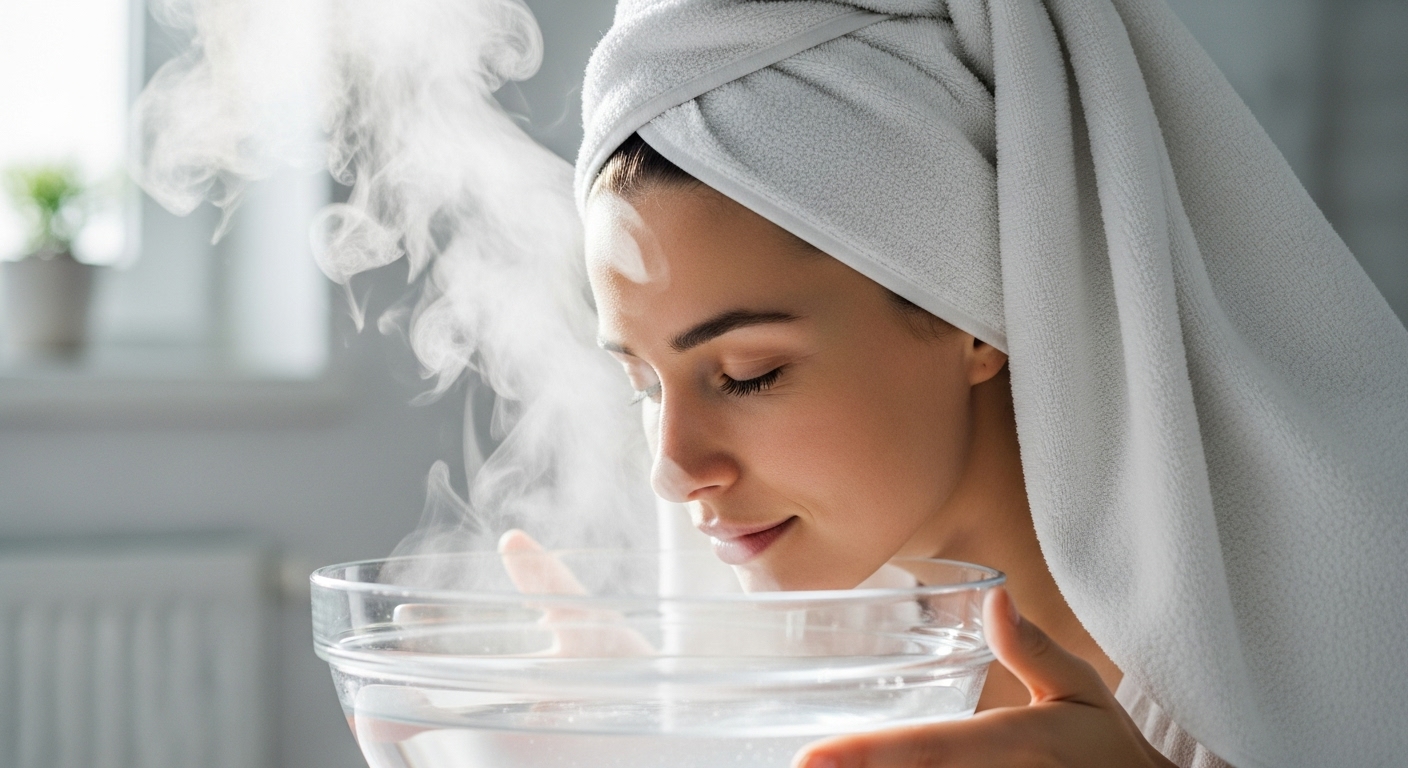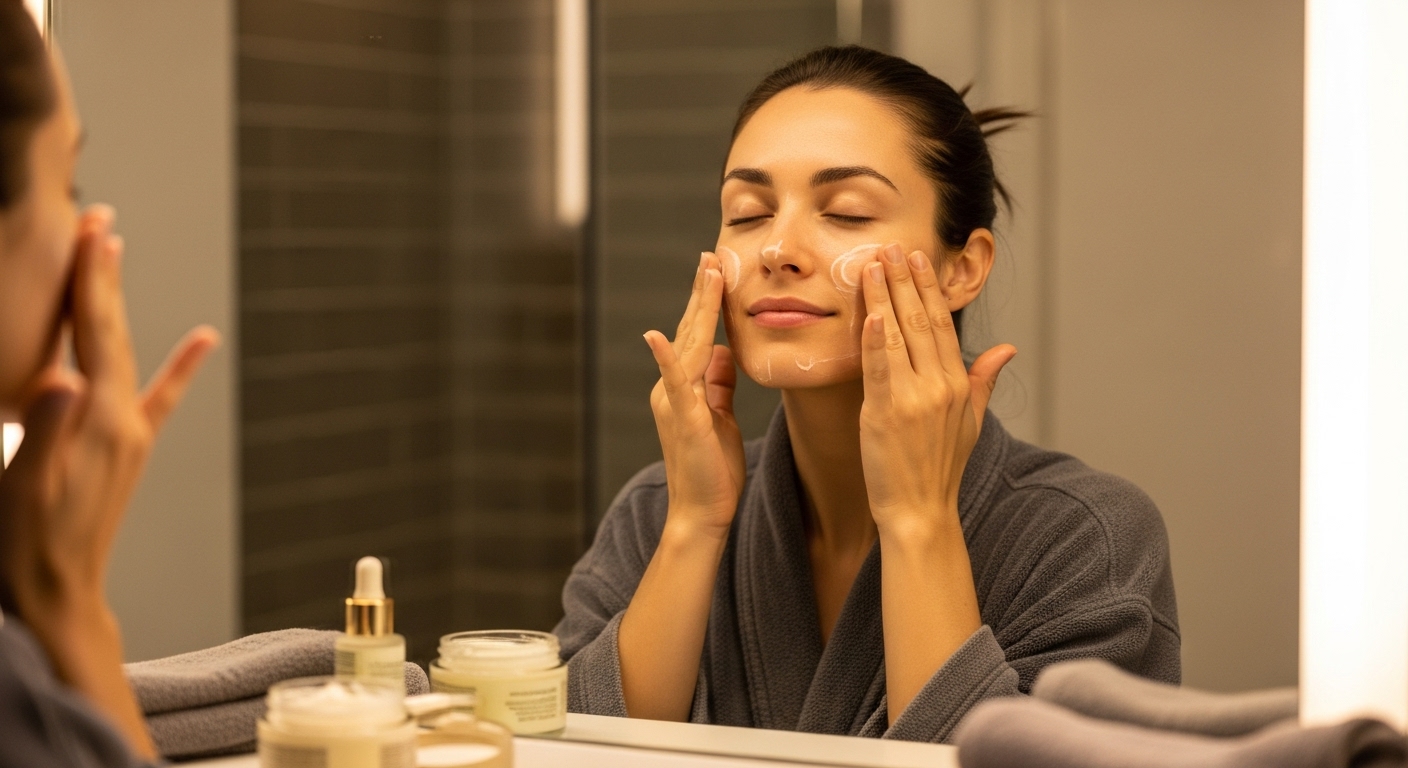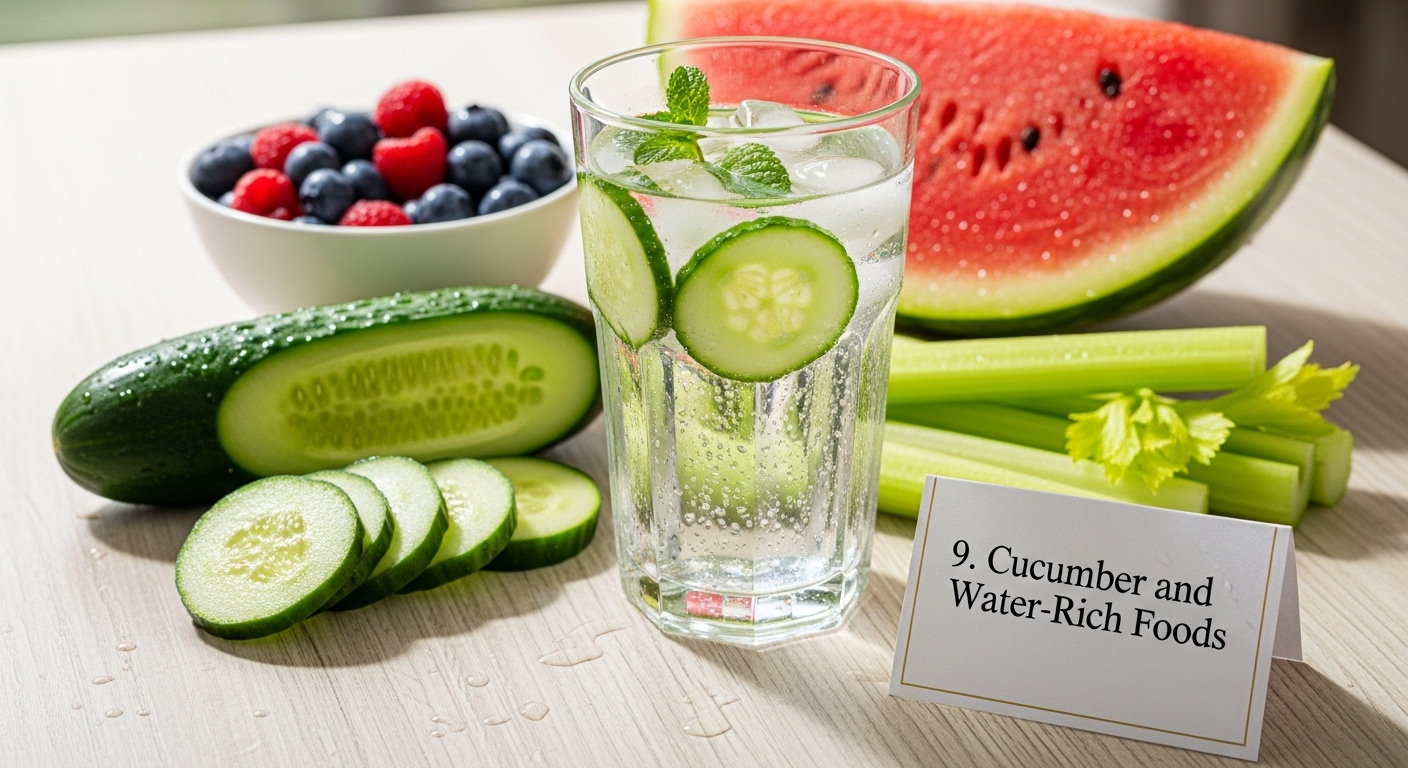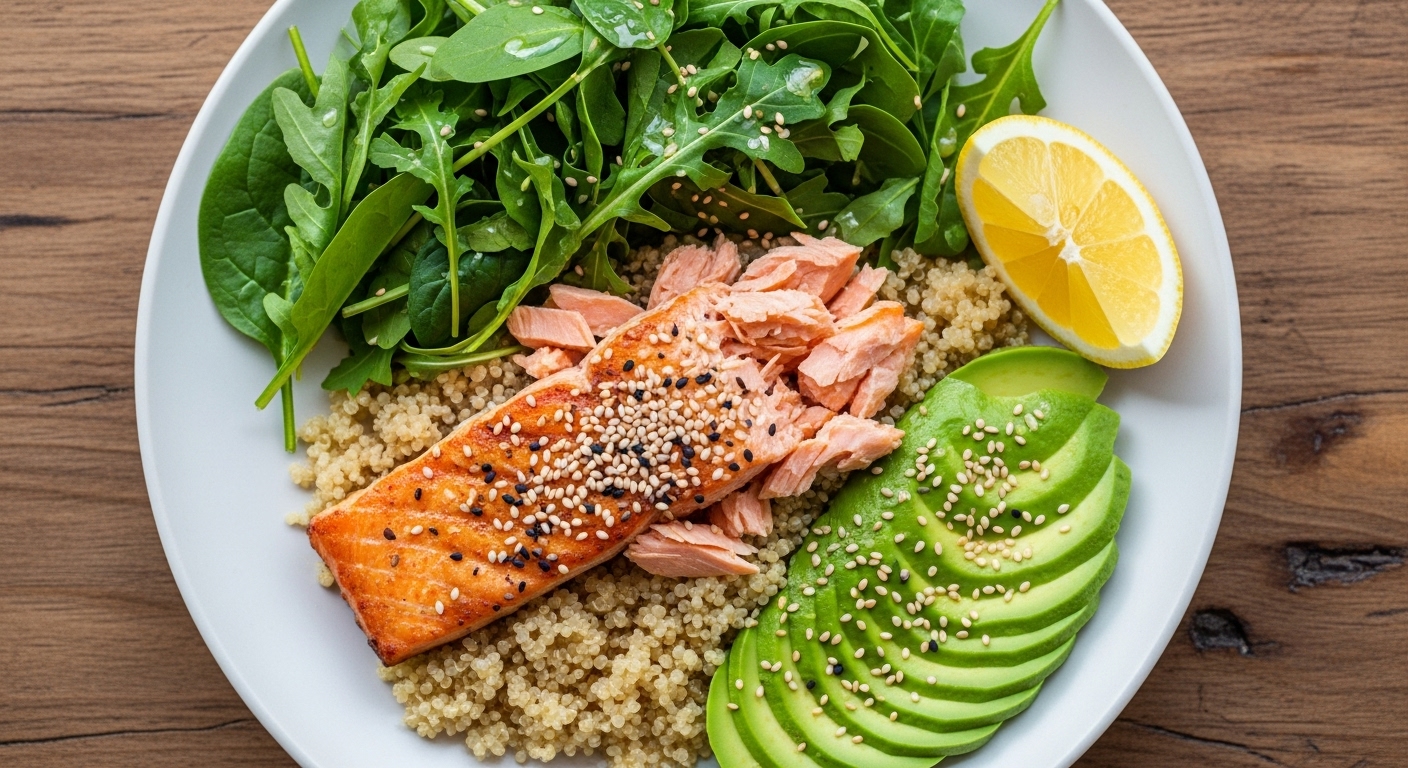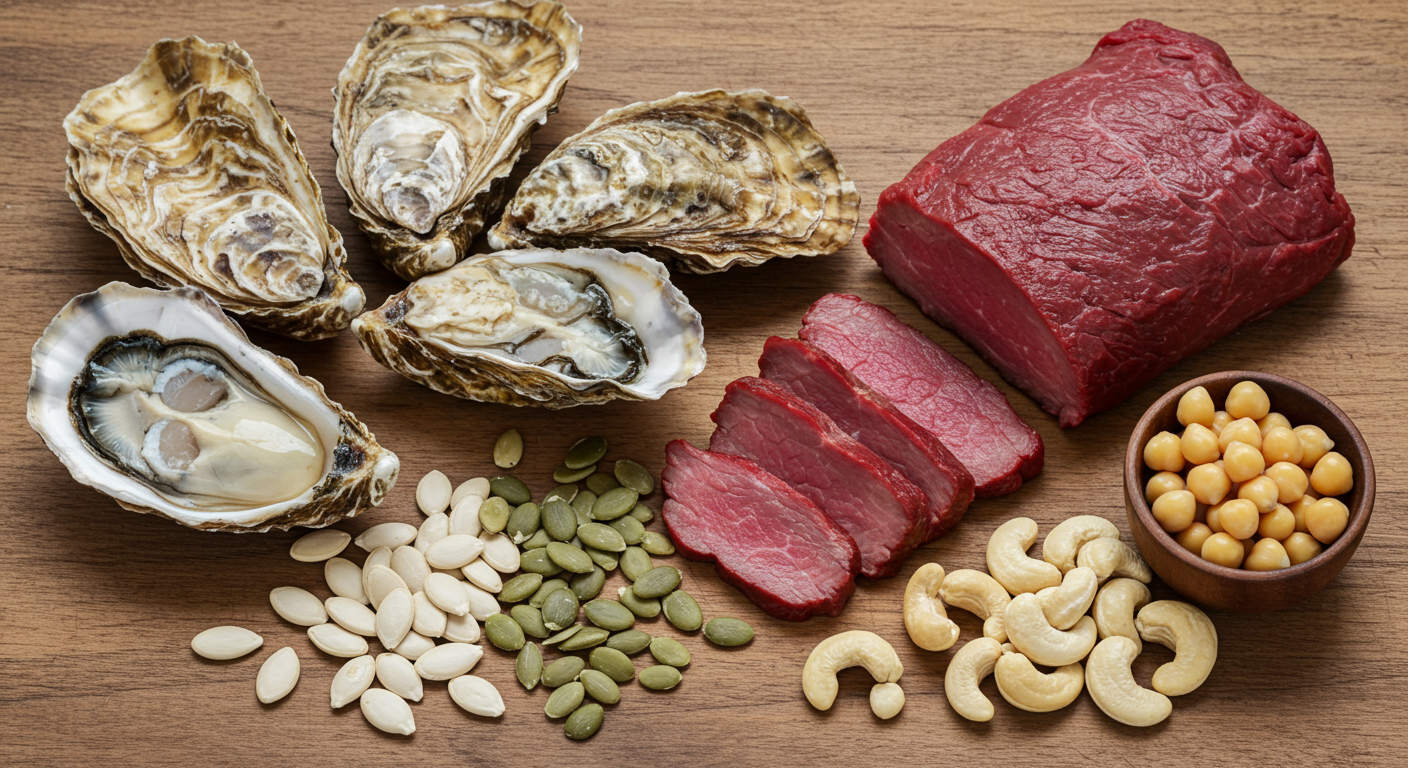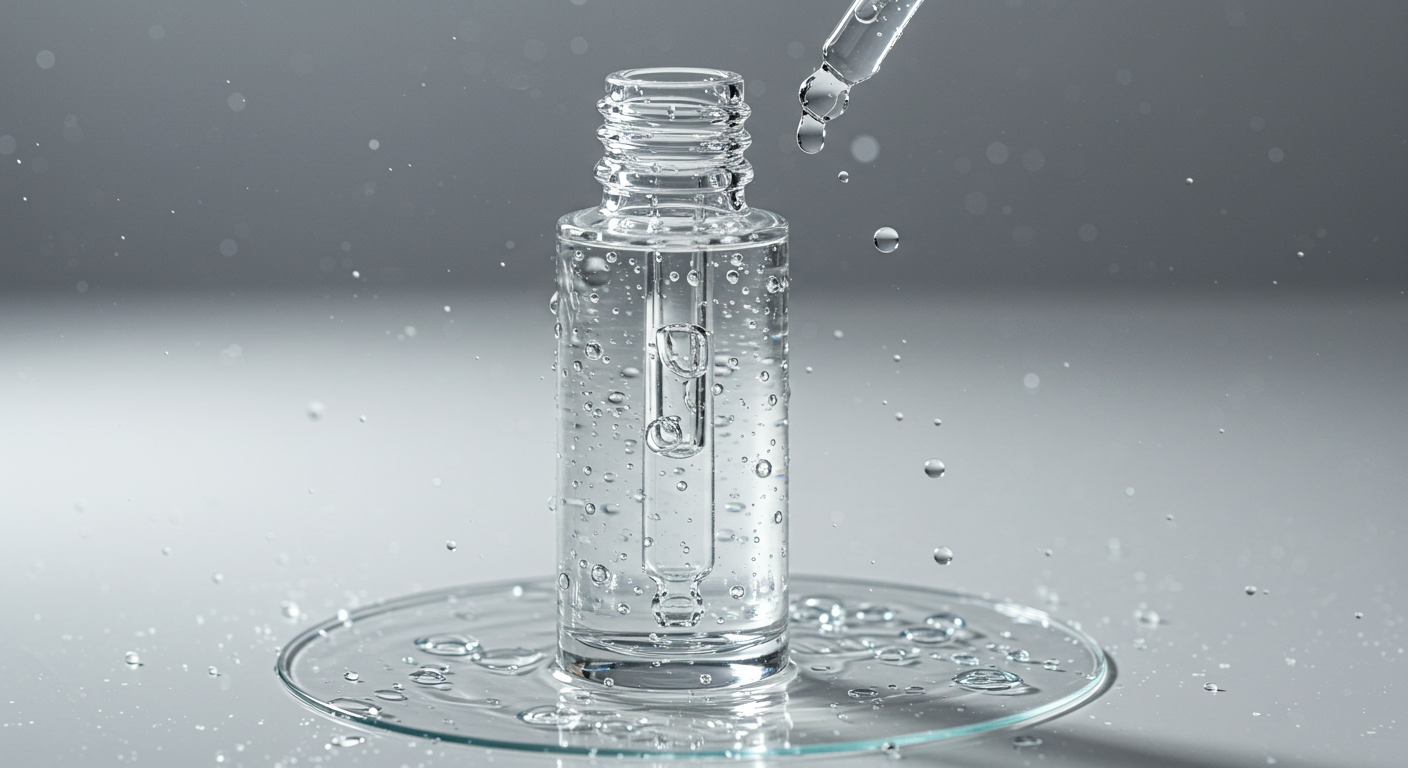Zinc supports immunity, skin health, and healing—but many people don’t get enough. Discover its benefits, signs of deficiency, and top food sources.
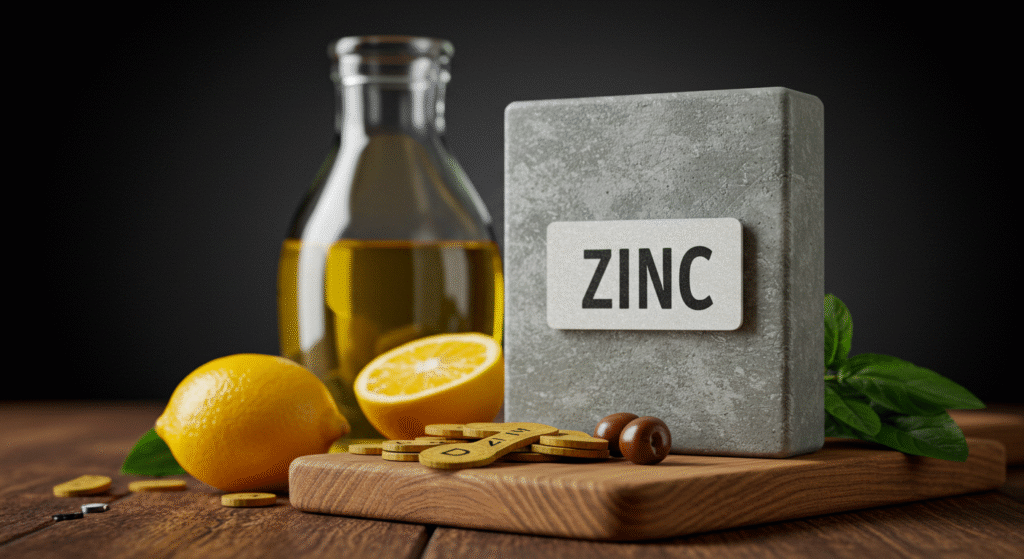
Why Zinc Deserves More Attention
When we think of essential nutrients, zinc often gets overshadowed by vitamins like C or D. But this trace mineral plays a vital role in hundreds of bodily functions—from immune defense to wound healing.
Because your body doesn’t store zinc, you need to consume it regularly through your diet.
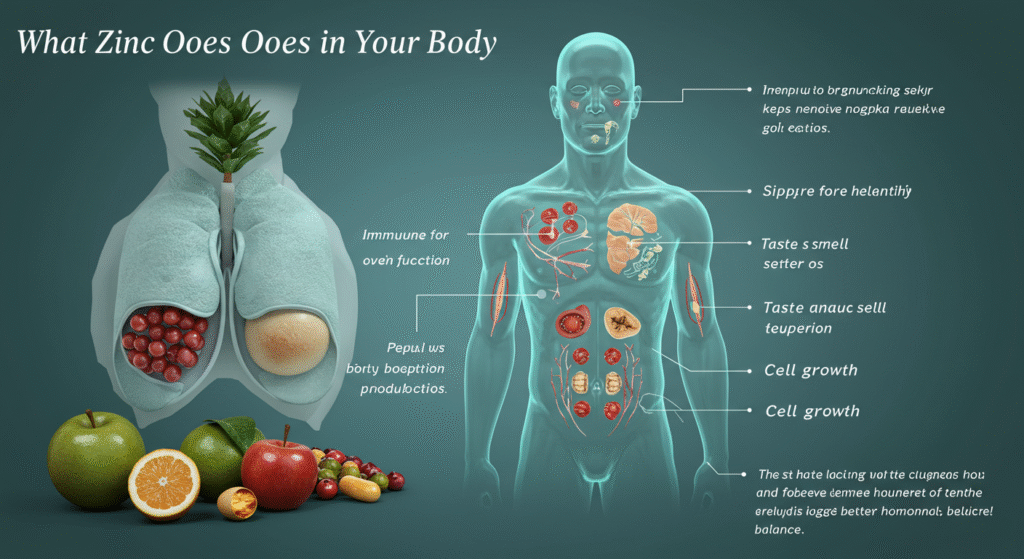
What Zinc Does in Your Body
Zinc is essential for:
- Immune function – Helps your body fight infections and recover faster.
- Skin health – Supports collagen production and helps repair wounds.
- Taste and smell – Zinc is crucial for your sense of taste and smell to function properly.
- Cell growth – Important for healthy hair, skin, and nail development.
Some research also links zinc to reduced inflammation and better hormonal balance.
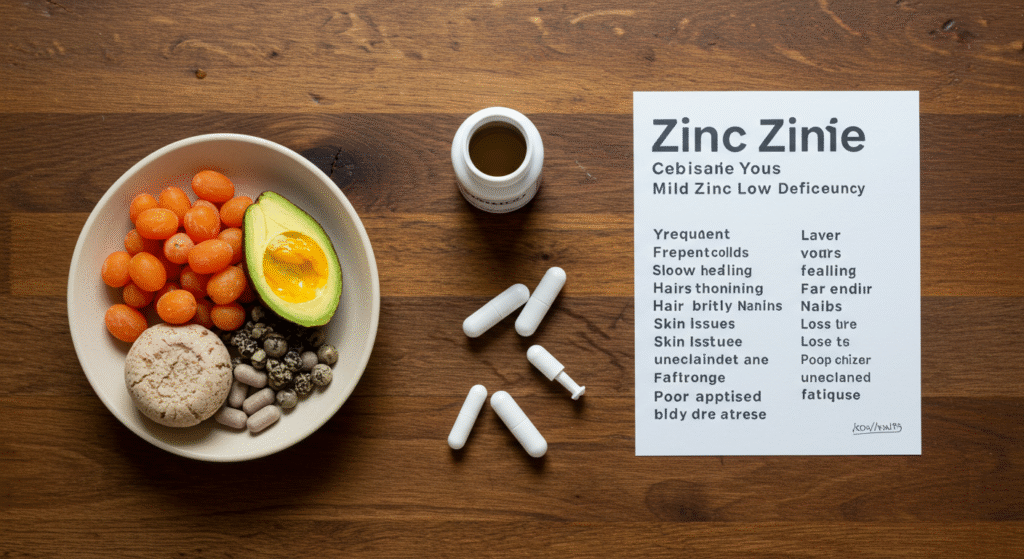
Signs You Might Be Low on Zinc
Mild zinc deficiency can cause:
- Frequent colds or slow wound healing
- Hair thinning or brittle nails
- Loss of taste or smell
- Skin issues like acne or rashes
- Poor appetite or unexplained fatigue
If symptoms persist, a simple blood test can confirm your zinc levels.
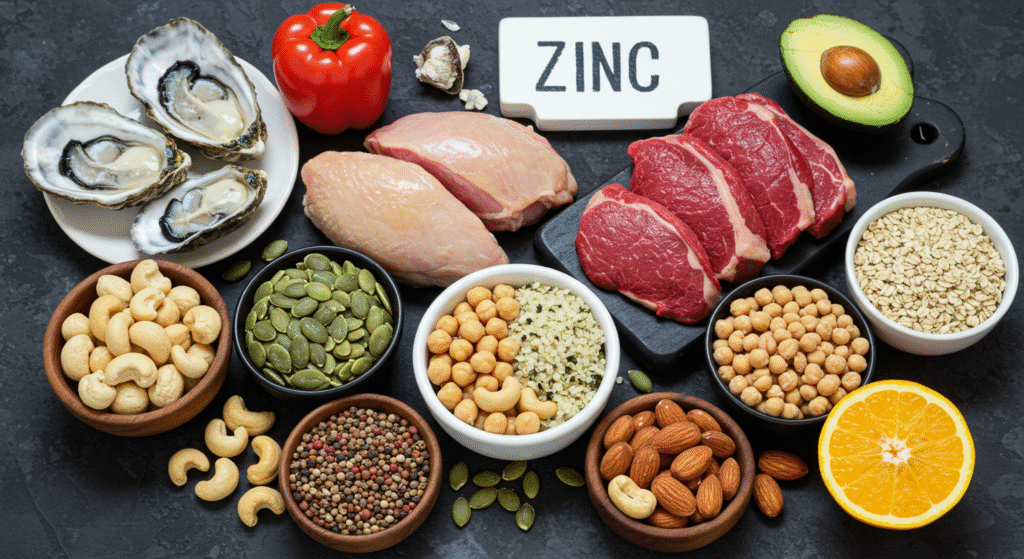
Best Food Sources of Zinc
Zinc is found in both animal and plant foods, though it’s absorbed more easily from animal sources.
Animal-Based Sources (high bioavailability):
- Oysters (one of the richest sources)
- Beef, lamb, and pork
- Chicken and turkey
Plant-Based Sources:
- Pumpkin seeds and hemp seeds
- Chickpeas, lentils, and beans
- Cashews and almonds
- Whole grains like quinoa and oats
💡 Tip: Pair plant-based zinc sources with vitamin C-rich foods (like bell peppers or citrus) to boost absorption.
How Much Zinc Do You Need?
According to health authorities, the recommended daily intake is about:
- Men: 11 mg
- Women: 8 mg
- Pregnant or breastfeeding women: 11–12 mg
Athletes, vegetarians, and people with certain health conditions may need more.
When to Consider Supplements
If you struggle to get enough zinc from food alone, supplements can help—but avoid high doses, as excess zinc can interfere with copper absorption and cause side effects. Always consult a healthcare provider before starting.
Final Thoughts
Zinc may be needed in small amounts, but its impact is huge. From a stronger immune system to healthier skin and faster healing, getting enough zinc each day is a simple yet powerful step toward better overall health.


